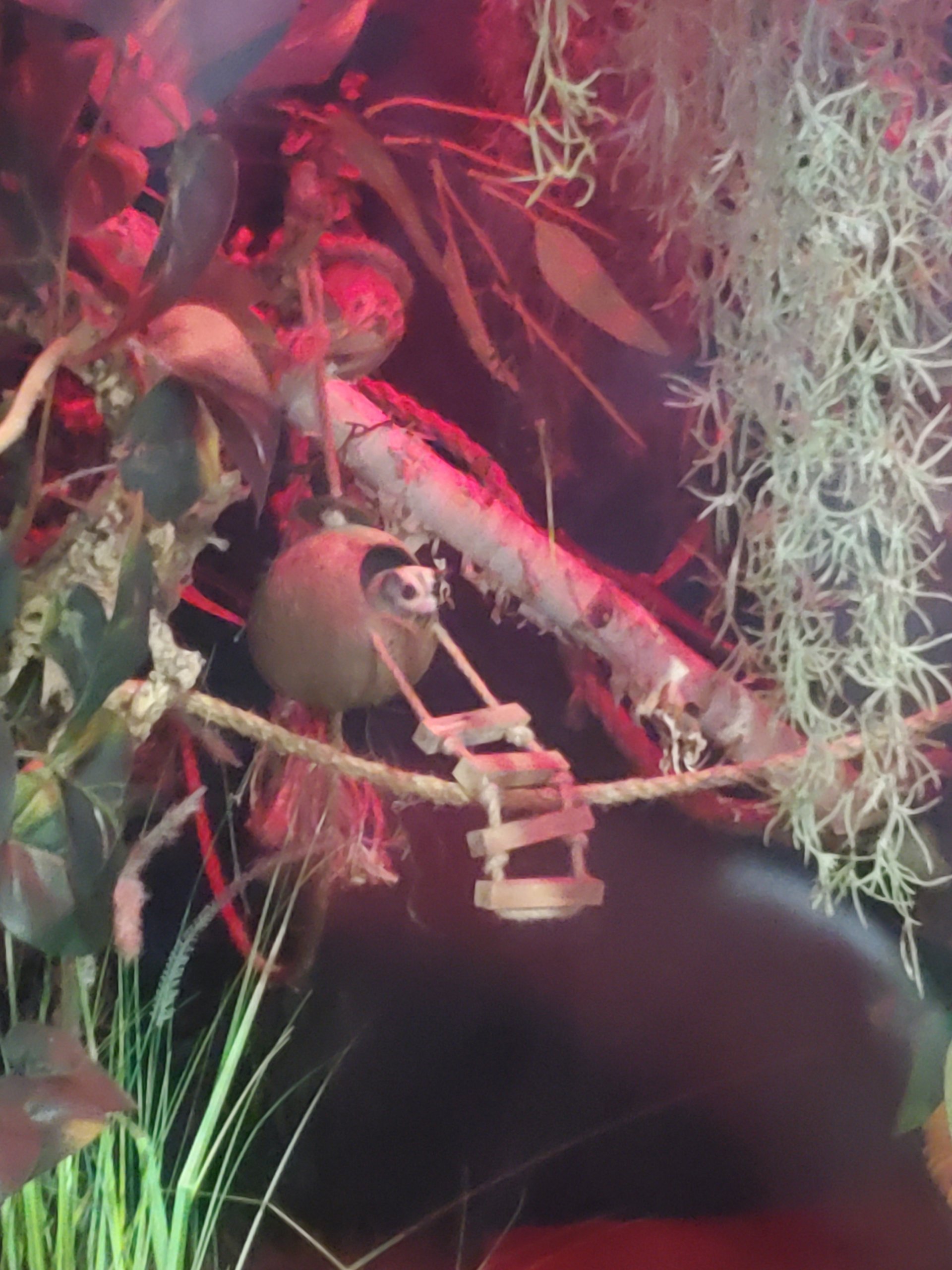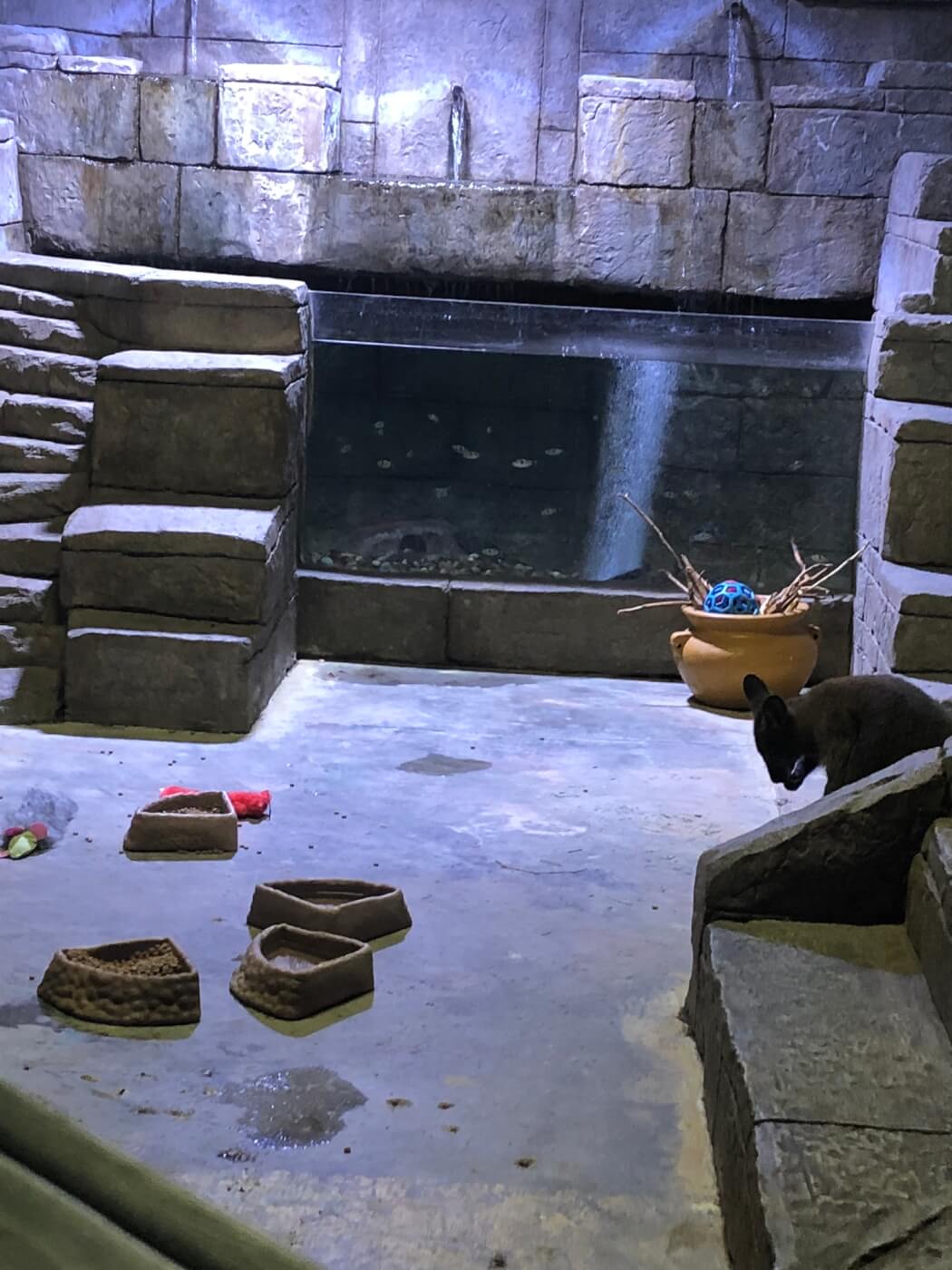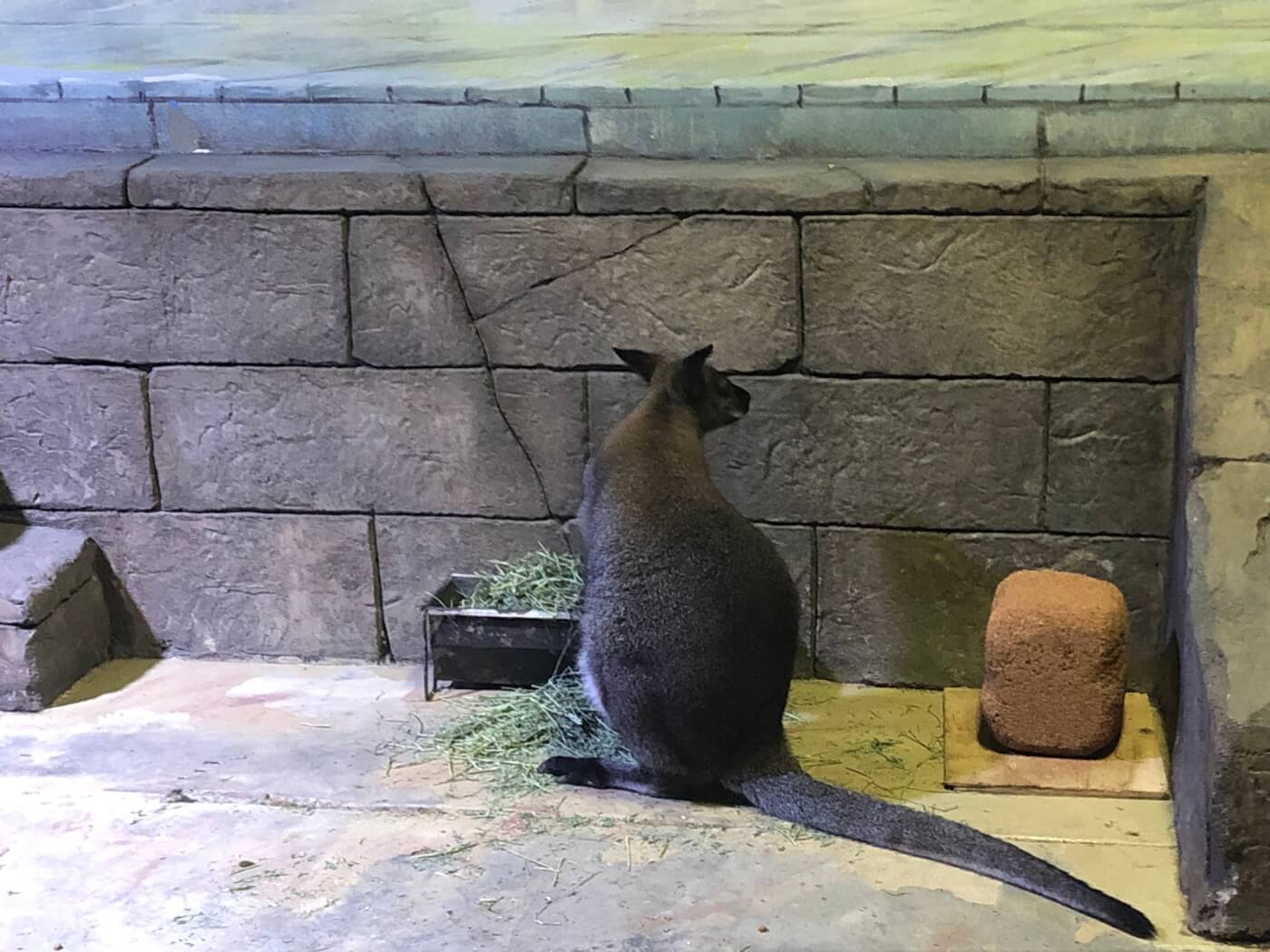Here’s Why You Shouldn’t Visit SeaQuest Littleton Near Denver
This notorious facility opened in 2018 and has been cited for a laundry list of dangerous and cruel incidents—including several in 2018, which led to a two-year suspension of its state zoological license.
Keep reading to find out why SeaQuest Littleton has no business keeping animals.
Animals Have Died and Sustained Serious Injuries at SeaQuest Littleton
SeaQuest Littleton fails to provide animals with safe and suitable enclosures and puts them and the public in potentially dangerous situations by allowing encounters with any human who is willing to pay the entrance fee. Several animals have died or been injured at the facility, and hundreds more have died while in transit to the site. The following are a few examples:
- On September 12, 2023, U.S. Department of Agriculture (USDA) inspectors issued SeaQuest Littleton three citations. One was for failing to provide two ducks with enough space outside the water for them to fully extend their wings or be able to eat from their food receptacle at the same time, which the inspector noted “can lead to poor physical and psychological condition.” The other citations were for failing to have adequate barriers to prevent public contact with the ducks and failing to properly and regularly sanitize a water receptacle for rabbits.
- On July 17, 2023, USDA inspectors issued the facility a critical citation after a sugar glider named Luna was found with her tail entangled in a piece of chain in her enclosure. The injury was so severe that half her tail required amputation.

- In June 2021, the U.S. Department of Agriculture (USDA) cited SeaQuest Littleton for violating the federal Animal Welfare Act because the facility had failed to provide a wallaby named Ben with a way to climb out of a deep-water aquarium tank located at the back of his enclosure. As a result, he fell into the tank and drowned.
- In June 2018, 250 trout died during transport to the facility.
- In November 2018, a sloth named Flash was severely burned by a heat lamp in his enclosure, causing swelling around his eyes, nose, mouth, and lips. There were multiple raw areas and redness on his face, and the wounds were oozing. According to staff, he winced while eating strawberries and his remaining food had to be cut smaller in order for him to eat. This was the second time Flash was burned by a heat lamp in his enclosure.
- In August 2018, 12 trout died at the facility and a kookaburra was found dead by an employee. Long pieces of material were found in the back of the bird’s throat, but it was uncertain whether they were the cause of death. SeaQuest reported to state officials that the kookaburra had drowned in a water bowl.
- In June 2018, a patron kicked and stomped on birds in the interactive aviary, killing five of them and injuring others, and 250 rainbow trout fingerlings died in transit to the facility.

Animals Have Injured Visitors and Staff at SeaQuest Littleton
In less than a year, between June 2018 and April 2019, SeaQuest Littleton had more than 40 incidents in which guests or staff were bitten or otherwise injured by animals—and similar incidents continue to occur. No wonder, because when animals are confined in a shopping mall and forced to interact with the public day in and day out, injuries such as those listed below are bound to be frequent:
- In July 2022, a Savannah cat bit a guest during a public interaction, resulting in a wound that broke the skin. All three cats at the facility had to be quarantined for six months because it wasn’t known which one had caused the injury. The USDA issued SeaQuest a critical citation in response to the incident, explaining that the facility’s inadequate handling of animals during public interactions could lead to injuries to both visitors and the animals. The inspection report stated that failing to provide sufficient distance or barriers between animals and the public also puts the animals at risk of becoming involved in situations that might require them to be euthanized.
- In April 2019, a pig lunged at and bit a customer.
- In January 2019, a pufferfish bit an 8-year-old child on the thumb. (Pufferfish secrete an extremely potent poison called tetrodotoxin, which can be transferred to humans through bites, potentially leading to numbness, difficulty breathing, and death by suffocation.) That same month, a sulcata tortoise named Stormin’ Norman bit a visitor’s hand; an Asian water monitor named Spartacus, who was being fed, jumped up and bit an employee; an iguana jumped onto a 6-year-old child’s chest and “got a claw inside her mouth”; an iguana jumped onto an employee’s left shoulder and caught a nail under the employee’s eye; and an iguana trying to climb a customer’s leg scratched an employee’s wrist and hand.
- In December 2018, an iguana bit an 8-year-old child who was feeding the animal, a visitor’s thumb was bitten by a pufferfish they were feeding, and a stingray stung an employee, who had to go to urgent care when the barb became lodged in their hand. (A venomous stingray barb typically causes intense pain, nausea, weakness, and fainting.)
- In November 2018, an iguana bit a visitor’s finger while being fed, a white cockatoo named Bella bit an employee’s finger, an iguana scratched an employee’s arm, an iguana bit a 4-year-old child while being fed, a pacu bit a 7-year-old child who was feeding the fish, and Spartacus bit a visitor’s According to the injured visitor’s Yelp review, the bite caused what appeared to be serious lacerations to his hand. He wrote that after SeaQuest Littleton promised to “take care of everything,” it sent them a letter “denying responsibility.”
- In October 2018, a horn shark bit a 7-year-old child while being fed, an iguana scratched an employee who was removing the animal from a tree in an exhibit, an iguana bit a toddler while being fed, an iguana bit an 8-year-old child while being fed, an iguana bit an employee, and a cockatoo named Bella bit an employee.
- In September 2018, Colorado Parks and Wildlife cited and fined SeaQuest Littleton for two counts of failing to report injuries to humans. In that month alone, a lorikeet bit a customer, Ben the wallaby scratched and bit an employee, Ben also “grabbed” an employee’s arm “and scratched & kicked causing the employee’s right arm to bleed,” a bamboo shark bit a customer while being fed in the shark lagoon, Spartacus scratched an employee while he was being transferred to a holding container, a Burmese python named Barbosa struck and latched onto the hand of an employee who was trying to fill the animal’s water receptacle, an iguana bit a 5-year-old child who was feeding the animal, an iguana scratched two employees when they tried to remove the animal from a tree next to an enclosure, and an iguana scratched an employee who was removing the animal from a visitor’s leg.
- In August 2018, an iguana bit a customer on the hand. On the same day, a porcupine pufferfish bit a patron when she put her finger in the animal’s enclosure. According to the incident report, the customer flung the fish out of the tank after she was bitten but caught the animal, who was prevented from touching the ground. The woman’s husband later reported that she had called 911 to report numbness and difficulty breathing as a result of the incident. That same month, Stormin’ Norman bit an employee, an iguana bit a toddler on the finger as she fed the animal, and a red tegu named Bossk scratched an employee’s arm.
- In June 2018, a lizard bit a young child during feeding.

SeaQuest Littleton Has Racked Up a Shocking Number of Citations
SeaQuest Littleton has been cited frequently for violating both state and federal laws, including for failing to report injuries to humans, failing to report deaths of animals, and operating without a necessary permit.
- On May 9, 2023, the USDA cited SeaQuest Littleton for failing to follow veterinary instructions regarding medicating a sugar glider named Hermione, and one night, staff failed to administer three medications to her. The facility was also cited for failing to keep the rabbit enclosure in good repair: The enclosure had broken concrete and exposed mesh and other materials that could be hazardous to rabbits if ingested.
- In June 2021, the USDA cited the operation for failing to store food and bedding in a manner that would protect it from contamination, deterioration, and mold. Two bags of bedding (one open and one ripped) were exposed to the public in the main guest area, where the bedding could become contaminated. In the food preparation area, an open bag of biscuits for guinea pigs wasn’t stored appropriately to protect it from deterioration and contamination.
- In April 2019, Colorado Parks and Wildlife suspended SeaQuest Littleton’s state zoological license for two years after the facility racked up eight animal care violation citations in less than a year. The incidents included unlawfully importing a sloth without a required permit, failing to report the death of a bird who reportedly had drowned in a water bowl, and allowing a sloth to be burned twice by a heat lamp in the enclosure holding the animal.
- In October 2019, the USDA cited the facility for housing two rabbits with a toucan, which could cause the rabbits—who are prey animals—stress. It was also cited for failing to maintain an enclosure holding two wallabies in good repair. The back wall had two holes exposing drywall, which could be a health hazard if ingested by the animals.
- In July 2019, the USDA cited the operation for failing to have acquisition records for several animals and failing to have disposition records for a sloth, two capybaras, and two Asian small-clawed otters who were no longer at the facility.
- In August 2018, SeaQuest Littleton gave approximately 80 parakeets to an underage employee, who stored them in his garage after the company was ordered to shut down its interactive aviary and reduce the number of birds at the facility. According to Colorado Department of Agriculture records, SeaQuest’s transfer of these birds to the teenager—who in turn gave them away to other members of the public—violated the July 2018 cease and desist order.
- In June 2018, SeaQuest Littleton was cited and fined by Colorado Parks and Wildlife for unlawful importation and possession of a two-toed sloth. Officials had found the sloth and capybaras in the basement of a SeaQuest manager’s home. Ten days after SeaQuest was told that these animals shouldn’t be moved to its facility until a license had been issued, officials found all three animals on display.
Our Fellow Animals Don’t Belong in SeaQuest’s Shopping Mall Aquariums
Intelligent, curious animals have complex lives of their own, and they don’t want to spend them in crummy shopping mall aquariums. The Littleton location is just one of SeaQuest’s hellholes—nationwide, the company has amassed many reports of animal neglect, animal deaths, legal violations, and injuries to the public. It’s clear that SeaQuest shouldn’t be operating anywhere. Take action to shut down the company’s exploitative facilities now:

